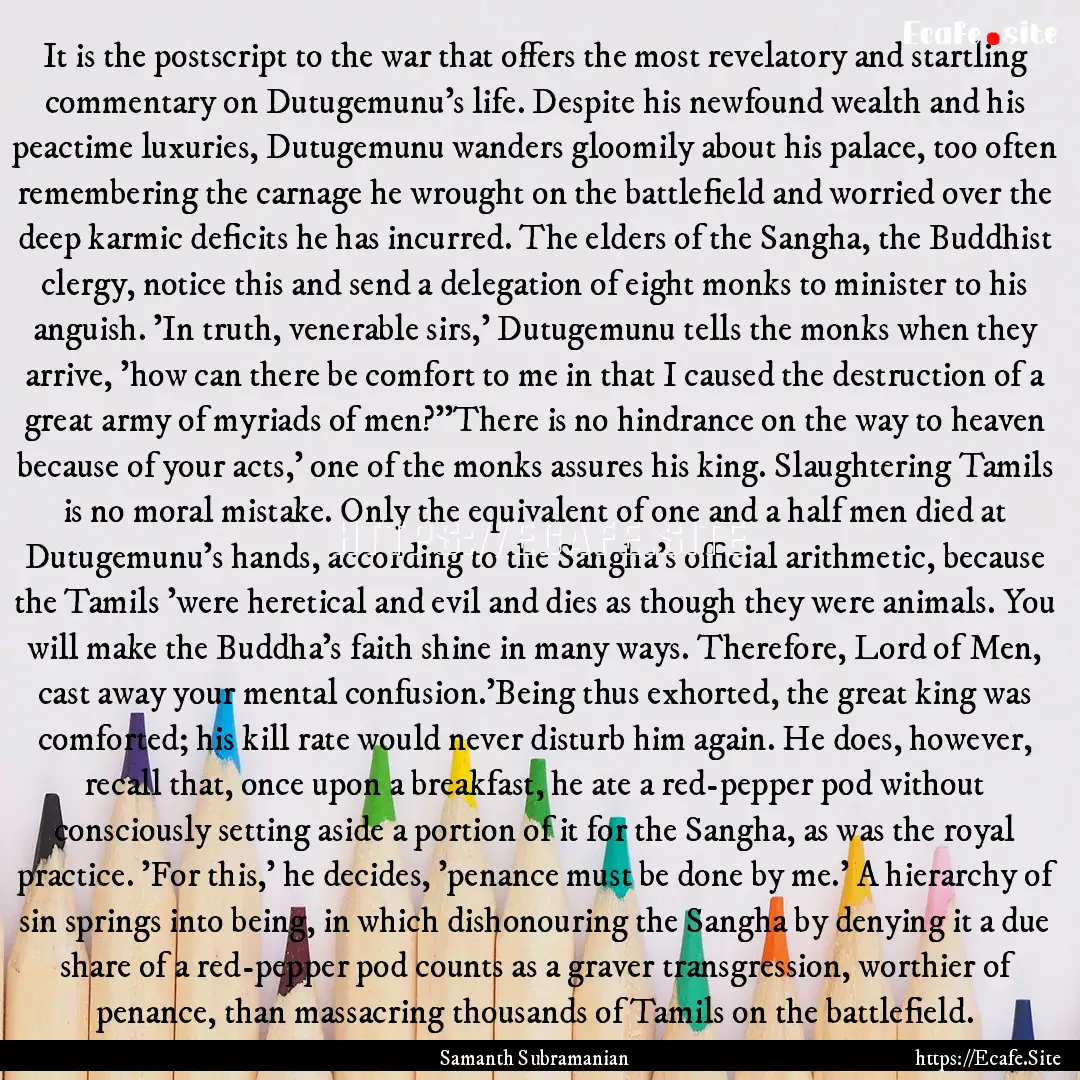
Report, if you have a problem with this page“ It is the postscript to the war that offers the most revelatory and startling commentary on Dutugemunu's life. Despite his newfound wealth and his peactime luxuries, Dutugemunu wanders gloomily about his palace, too often remembering the carnage he wrought on the battlefield and worried over the deep karmic deficits he has incurred. The elders of the Sangha, the Buddhist clergy, notice this and send a delegation of eight monks to minister to his anguish. 'In truth, venerable sirs,' Dutugemunu tells the monks when they arrive, 'how can there be comfort to me in that I caused the destruction of a great army of myriads of men?''There is no hindrance on the way to heaven because of your acts,' one of the monks assures his king. Slaughtering Tamils is no moral mistake. Only the equivalent of one and a half men died at Dutugemunu's hands, according to the Sangha's official arithmetic, because the Tamils 'were heretical and evil and dies as though they were animals. You will make the Buddha's faith shine in many ways. Therefore, Lord of Men, cast away your mental confusion.'Being thus exhorted, the great king was comforted; his kill rate would never disturb him again. He does, however, recall that, once upon a breakfast, he ate a red-pepper pod without consciously setting aside a portion of it for the Sangha, as was the royal practice. 'For this,' he decides, 'penance must be done by me.' A hierarchy of sin springs into being, in which dishonouring the Sangha by denying it a due share of a red-pepper pod counts as a graver transgression, worthier of penance, than massacring thousands of Tamils on the battlefield. ”

Samanth Subramanian
From : This Divided Island: Stories from the Sri Lankan War



